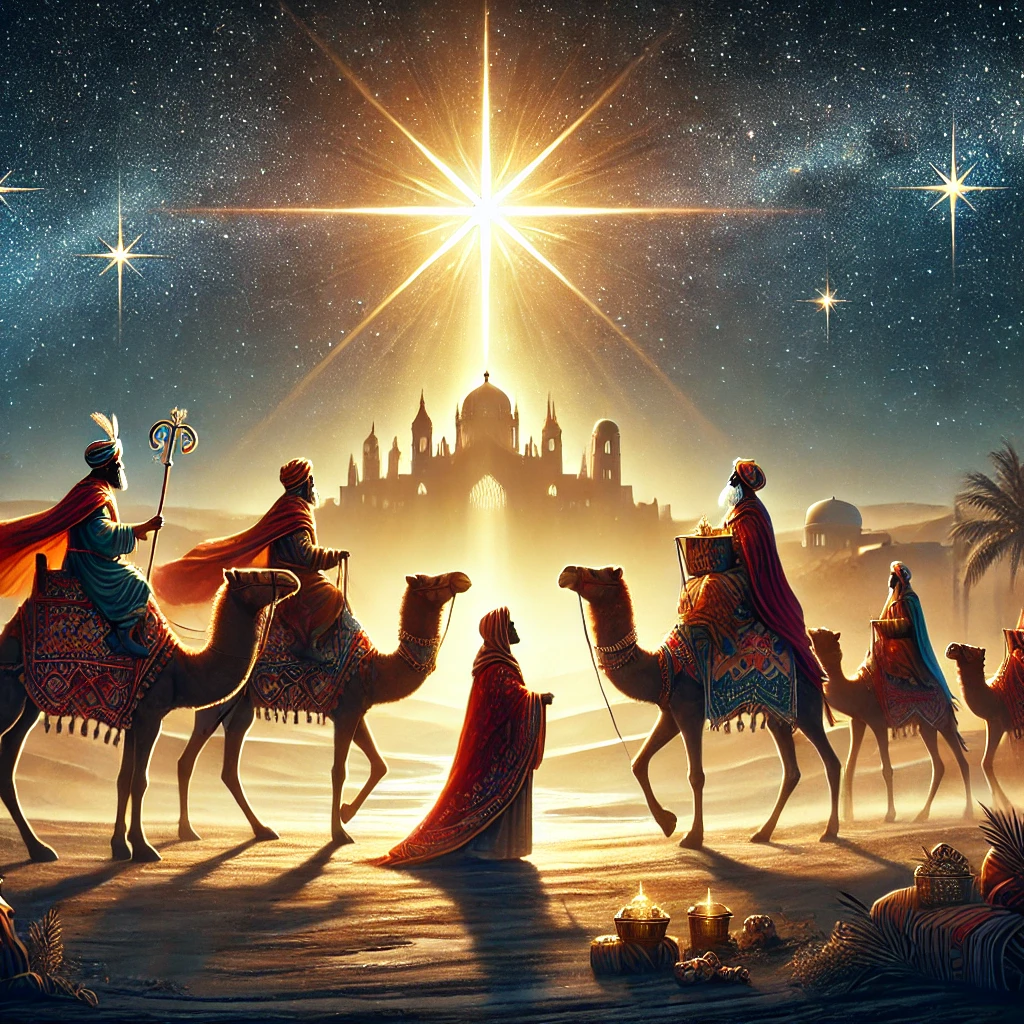Manifestation of God’s Glory to the Nations
The Epiphany, celebrated annually on January 6th, is one of the most profound feasts in the Christian liturgical calendar. Rooted in deep spiritual significance, it marks the manifestation of Jesus Christ to the Gentiles, represented by the Magi. The word “Epiphany” originates from the Greek ἐπιφάνεια (epipháneia), meaning “appearance” or “manifestation.” This feast celebrates the universality of Christ’s mission and reminds us of God’s boundless love that transcends boundaries of race, culture, and nation.
The Journey of the Magi: A Story of Faith
The Gospel of Matthew (2:1-12) recounts the journey of the Magi, wise men from the East, who followed a star to Bethlehem. Their gifts of gold, frankincense, and myrrh were symbolic:
- Gold: Acknowledging Jesus as King.
- Frankincense: Honoring His divinity.
- Myrrh: Foreshadowing His sacrificial death.
The Magi’s journey is an invitation to all believers to seek Christ, guided by faith, despite challenges and uncertainties. It is a testament to the fact that Jesus’ birth is a gift not just for a chosen few but for the entire world.

Spiritual Significance of the Epiphany
- Manifestation of Christ to All Nations The visit of the Magi underscores the universality of Jesus’ mission. He came not only for the people of Israel but for all humanity.
- God’s Guidance The star that guided the Magi symbolizes God’s constant presence and guidance in our lives. It encourages us to trust in divine providence as we navigate our own journeys of faith.
- Call to Worship The gifts of the Magi remind us of the call to worship Christ with the best of what we have and are. They inspire us to offer our lives as a living sacrifice to God.
How the Epiphany Inspires Us Today
The Feast of the Epiphany invites us to reflect on how we can be bearers of God’s light in our world today. Here are three ways to live out this message:
- Hospitality and Inclusivity: Just as the Magi were welcomed into the humble abode of Jesus, we are called to open our hearts and homes to those in need, embracing diversity and unity.
- Pursuit of Truth: The Magi’s journey exemplifies the search for truth. In a world often clouded by misinformation, we are reminded to seek Christ, the ultimate Truth.
- Sharing the Light: The Epiphany challenges us to share the Good News of Christ’s love with others. Whether through acts of charity, words of encouragement, or simply living out our faith authentically, we can be beacons of hope.
Epiphany Traditions Across the World
- Blessing of Homes: Many families mark the Epiphany by blessing their homes with chalk, inscribing “20+C+M+B+24” above doorways. This stands for “Christus Mansionem Benedicat” (“May Christ bless this house”).
- Epiphany Cakes: In many cultures, a special cake is baked, often with a hidden trinket. The person who finds it is crowned “king” or “queen” for the day.
- Processions and Reenactments: Communities worldwide reenact the journey of the Magi, celebrating the joy of Christ’s manifestation.
A Prayer for the Feast of the Epiphany
Heavenly Father, You revealed Your Son to the nations by the guidance of a star. Lead us by faith to know Your presence in our lives and bring us to the vision of Your glory. May we, like the Magi, offer You our gifts of love, adoration, and service. Amen.
Conclusion
The Epiphany is more than a historical event; it is a living reality that calls us to recognize God’s glory in our lives and share it with the world. As we celebrate this feast, may we be inspired to seek Christ diligently, worship Him wholeheartedly, and proclaim His love unceasingly.



